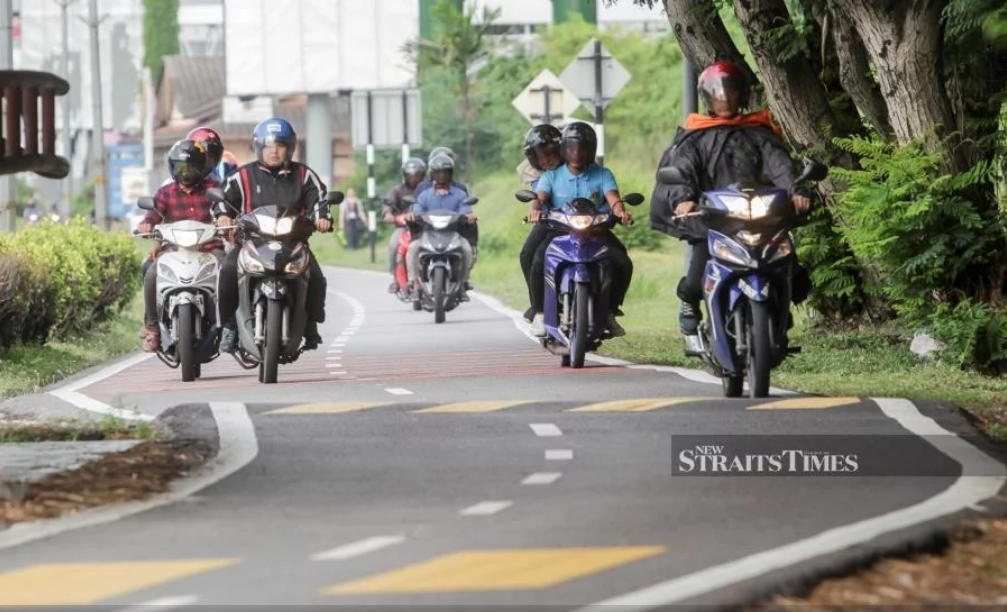Bike ride-sharing service 'not safe, will kill local business'

KUALA LUMPUR: No Gojek in Malaysia, please.
Road safety experts, public transport advocates, taxi operators and even the mainstream e-hailing service sector have rallied against the green light given to motorcycle e-hailing service Gojek to operate in Malaysia.
Traffic engineering specialist Dr Law Teik Hua voiced his objection to the move, saying up to 60 per cent of annual road deaths in the country involved motorcyclists and pillion riders.
“The public must find a way to discourage this (Gojek’s operations) chiefly due to safety,” said Law, a professor at Universiti Kebangsaan Malaysia.
He said having another e-hailing service model to take up a slice of the public transport industry’s pie would not sit well with other players who had been squabbling for a place in the past five years.
“We have so many problems between taxi operators and e-hailing companies. Adding another player will lead to more issues,” said Law, referring to protests by taxi associations over stiff competition in the industry.
The public transport advocate said the government’s nod to the motorcycle ride-sharing service was counter-productive against the use of public transport.
“We’ve invested so much taxpayers’ money in public transport. Recently, we decided to proceed with the Light Rapid Transit 3 project. So what message are we sending to the public? That they don’t need to use these facilities?”
Law said the business environment was not conducive for such a service as Malaysians were generally more affluent and prioritised safety and comfort while commuting.
He said Malaysia experienced fewer traffic woes compared with Thailand and Indonesia, where such motorcycle e-hailing services thrived.
“A survey should have been carried out to gauge the people’s reception towards the motorcycle e-hailing service. Otherwise, the government will be wasting its resources to come up with a regulatory framework for an inept model.
“The public must pressure the government to change its mind.”
Bumiputera Taxi Entrepreneurs Association chairman Datuk Mohd Alias Abdullah did not rule out the possibility of street protests against the government’s decision, which will affect taxi drivers’ income.
“We will protest because there will be a mass migration to the ride-sharing model because consumers are price-sensitive.”
He reminded the government that there were some 35,000 taxi drivers in the Klang Valley and the association would reach out to e-hailing companies to rally their support.
In 2016, taxi drivers staged a blockade with their vehicles in Jalan Bukit Bintang during the afternoon rush hours to compel the government to heed their grouses over the rise of unregulated e-hailing services.
Malaysian Taxi, Limousine and Car Rental Operators and Drivers Association president Mohd Shahrir Abdul Aziz said the government should bear in mind safety issues concerning pillion riding.
“Yes, it will provide the youths with jobs, but at the likelihood of injury or death? In Thailand and Indonesia, some of these riders take up to two pillion riders at once.
“We should not resort to populist measures to solve unemployment. They (the government) have already introduced e-hailing service. We need to carry out a feasibility study on safety before allowing the service to hit the road.”
E-hailing service MyCar founder Mohd Noah Maideen hoped the government would review the decision, improve and promote public transport
“We have taxis, e-hailing services and public transport like buses. Those are the ones that should be made more efficient.
“Our country is not highly populated, our road system is better than the countries implementing this system and our standard of household income also enables us to use e-hailing, such as MyCar or Grab.
“I hope the government will look into this move thoroughly.”
Noah said the government should focus on promoting local endeavours instead of foreign businesses.
“The government shouldn’t allow foreign companies to capitalise on our market since we (local businesses) are already here.
“There are 37 e-hailing companies licensed by the Transport Ministry. Do we need to another segment to the transport system? I don’t think so.”
